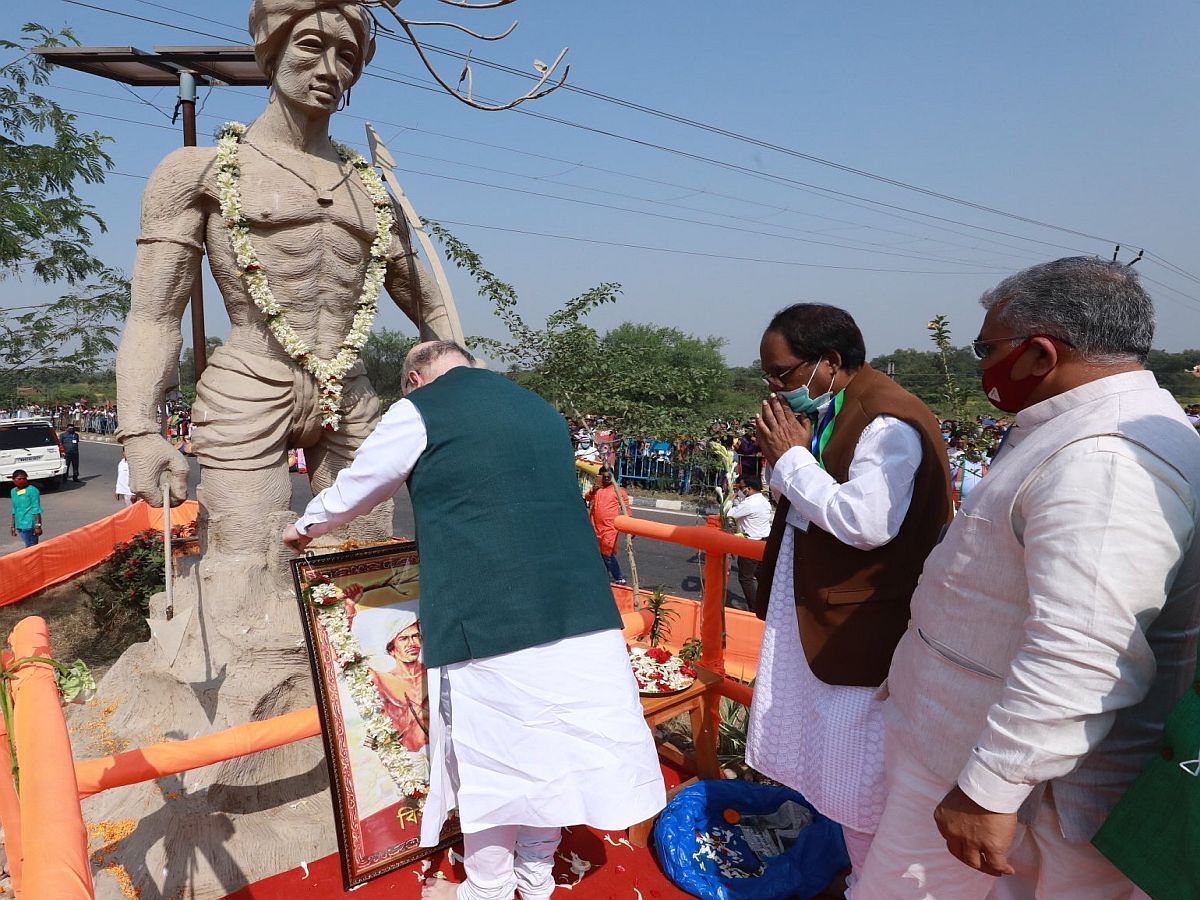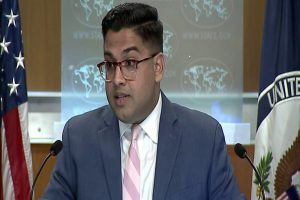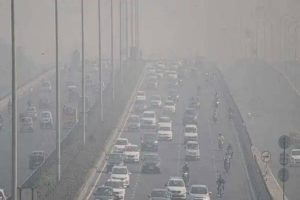A controversy erupted in Bengal during the visit of Union Home Minister Amit Shah on Friday over a statue of tribal leader Birsa Munda as the statue has been reportedly placed wrongly.
Shah is on a two-day visit to Bengal to kickstart BJP’s preparations for Assembly elections which is due early next year.
Union Minister was in Bankura — a district which is a part of the tribal-dominated Jangalmahal area of Bengal — to tap the tribal votes.
In the town, Amit Shah’s first stop was to garland a statue of the legendary tribal leader, Birsa Munda, who fought for India’s independence and was killed at the young age of 25.
Embarrassingly, at the last minute, tribal leaders pointed out to the BJP that the statue was not of Birsa Munda at all, but a general tribal hunter.
BJP hastily placed a portrait of Birsa Munda at the foot of the statue. Minister showered petals at the statue and garlanded the portrait.
“Paid floral tributes to legendary tribal leader Bhagwan Birsa Mundaji in Bankura, West Bengal today. Birsa Mundaji‘s life was dedicated to the rights and upliftment of our tribal sisters and brothers. His courage, struggles and sacrifices continue to inspire…” he tweeted.
“Started my two days Bengal visit by paying tributes to Bhagwan Birsa Munda today. Public anger against the Mamata govt can be seen all over the state. People of Bengal only have hope in PM @narendramodi, they know that only he can bring back the prosperity & glory of Bengal,” he had said after the ceremony.
“‘Bohiragato’ are at it again! Union Home Minister @AmitShah is so ignorant of Bengal’s culture that he insulted Bhagwan Birsa Munda by garlanding a wrong idol & placed his photo at someone else’s foot. Will he ever respect Bengal?” AITC responded.
At the first stop in Bankura on his two-day visit to West Bengal, Shah on Thursday had said that the BJP would form government in the state after winning two-third seats in next year’s Assembly Elections.
He further added that Banerjee was scared to see the rise of BJP in West Bengal and was, thus, deliberately restricting the Central Government’s welfare scheme in the state.












